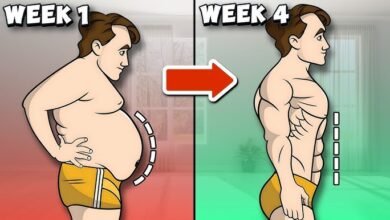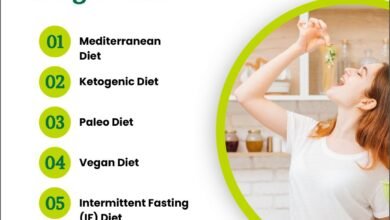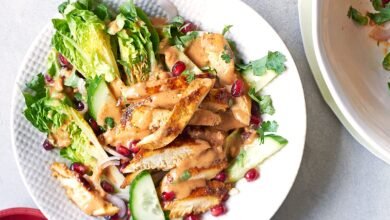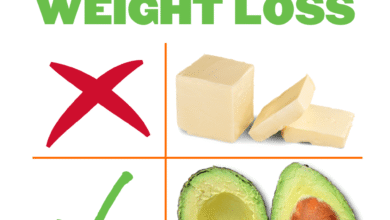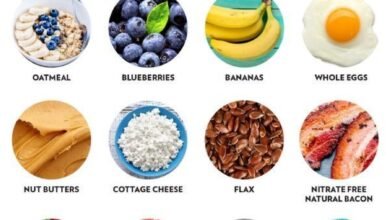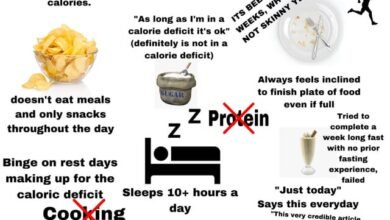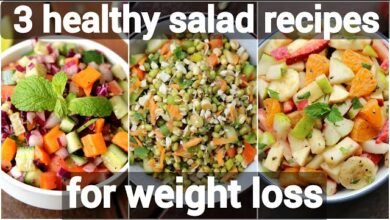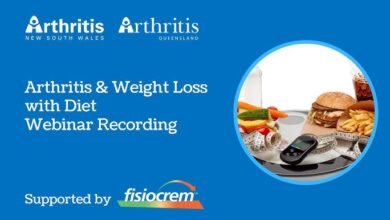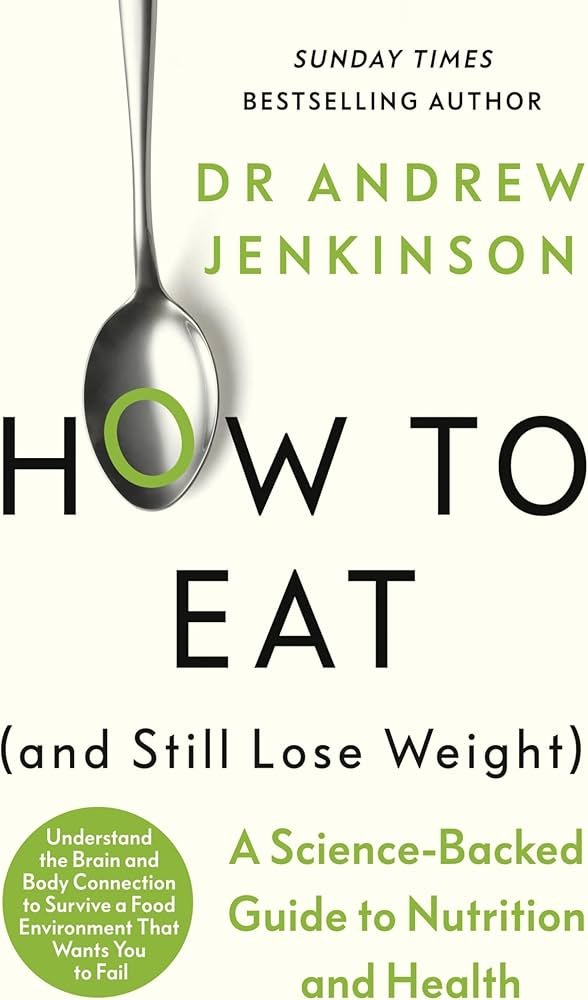
Can You Eat Processed Food And Still Lose Weight?: Surprising Truths
You might find yourself staring at your pantry, filled with colorful packages of processed foods, and wondering: “Can I really eat this stuff and still lose weight?” It’s a question many of us grapple with, especially when trying to balance convenience with our health goals.
The good news is, you’re not alone in this struggle, and there’s an answer that might surprise you. Imagine being able to enjoy your favorite snacks without the guilt, while still shedding those extra pounds. Sounds too good to be true?
Stick around, because we’re diving into the truth about processed foods and how they can fit into your weight loss journey. Let’s explore how you can make smart choices and achieve your goals without giving up the foods you love.
Processed Foods And Weight Loss
Eating processed foods doesn’t automatically hinder weight loss efforts. Choosing options with lower calories and balanced nutrition can help. Portion control and mindful eating play key roles in maintaining a healthy diet while enjoying these convenient foods.
Embarking on a weight loss journey often brings up the question: Can you eat processed foods and still shed pounds? Many believe that cutting out processed foods is a must for losing weight. However, with smart choices and portion control, you can enjoy some processed foods without derailing your goals.Understanding Processed Foods
Processed foods range from minimally processed items like frozen vegetables to heavily processed snacks. It’s crucial to distinguish between these levels. A bag of frozen peas is a convenient, healthy choice compared to a bag of chips.Moderation Is Key
Eating processed foods in moderation can fit into a balanced diet. A slice of whole-grain bread or a serving of canned beans can be nutritious. The key is to check labels for hidden sugars and unhealthy fats.Reading Nutrition Labels
Nutrition labels are your best friend when choosing processed foods. Look for items with fewer ingredients. Aim for those with higher fiber and protein content, which can help keep you full longer.Portion Control
Even the healthiest processed food can lead to weight gain if overconsumed. Stick to serving sizes. Consider using smaller plates to help control portions naturally.Personal Experience With Processed Foods
I once thought I had to eliminate all processed foods to lose weight. However, by choosing smarter options like low-sugar granola bars, I still reached my goals. It’s about finding a balance that works for you.Balancing Processed And Whole Foods
Strive for a diet that includes mostly whole foods with room for some processed options. An apple with a spoonful of peanut butter can be a satisfying snack. Balance and variety are essential for sustainable weight loss.Meal Planning And Preparation
Planning meals can help you make better choices with processed foods. Consider prepping meals in advance to avoid last-minute unhealthy choices. This strategy can keep you on track while allowing some flexibility. Eating processed foods doesn’t have to sabotage your weight loss efforts. What changes can you make today to create a balanced diet that includes the occasional treat?
Credit: www.amazon.com
Nutritional Myths
Many people believe processed food harms weight loss. This belief is widespread. Yet, the truth is not so simple. While fresh food is ideal, processed food can fit a healthy diet.
Processed doesn’t mean unhealthy. Some processed foods are nutritious. Understanding nutritional myths helps make informed choices.
Myth #1: All Processed Food Is Bad
Many think processed food is unhealthy. Not all processed food is harmful. Some are fortified with vitamins and minerals. Canned beans and frozen vegetables are nutritious.
They offer convenience and health benefits. It’s essential to read labels. Knowing ingredients helps choose better options.
Myth #2: Processed Food Causes Weight Gain
Some believe processed food leads to weight gain. This is a myth. Weight gain happens when calorie intake exceeds usage. Portion control and balanced diet matter.
Processed food can be part of a balanced diet. Focus on calories and nutrients. It’s about moderation and variety.
Myth #3: Fresh Food Is Always Healthier
Fresh food is often seen as superior. Not always true. Fresh isn’t always more nutritious. Some frozen fruits retain more vitamins.
Processing can preserve nutrients. It’s important to choose wisely. Balance fresh and processed for a healthy diet.
Calorie Control
Calorie control is the secret weapon when it comes to losing weight, even if processed foods are a part of your diet. Many people believe processed foods are the enemy of weight loss, but they can be enjoyed responsibly. How? By keeping a close eye on calorie intake. It’s not about eliminating foods you love—it’s about making informed choices.
Calorie Counting Made Simple
Have you ever thought about the calories in your favorite snack? Counting calories might seem tedious, but it’s surprisingly straightforward. Start by reading nutrition labels. Most processed foods clearly list their calorie content, making it easy for you to track what you consume.
Consider using a calorie-tracking app. These apps simplify the process and help you stay accountable. Imagine knowing exactly how many calories you’ve eaten by lunchtime, allowing you to adjust your evening meal accordingly.
Portion Control
Portion control is crucial in managing calorie intake. It’s easy to overeat when you’re not paying attention. Remember the times you’ve polished off a bag of chips without realizing it?
Use smaller plates to prevent over-serving. You’re less likely to pile on extra food. This simple trick can drastically reduce calorie consumption without leaving you feeling deprived.
Balancing Your Choices
Processed foods can fit into a balanced diet. It’s about pairing them with healthier options. Think about swapping out half your usual portion of pasta for a side of steamed veggies.
Creating a balance helps keep your meals satisfying while controlling calories. You don’t have to give up your favorite foods entirely—you just need to be smart about how you combine them.
Mindful Eating
How often do you eat without thinking? Mindful eating encourages you to focus on your food and its taste. This practice can prevent overeating and help you appreciate the flavors of your meal.
Try setting aside distractions during meals. Turn off the TV and put away your phone. Concentrating on each bite can help regulate your hunger and fullness cues, making calorie control easier.
Incorporating these strategies into your daily routine can make a significant difference in your weight loss journey. Are you ready to try these tips and see the results for yourself? Remember, it’s not about perfection—it’s about progress!
Portion Management
Eating processed food and losing weight is possible with portion management. Balance is key to control calorie intake. Focus on smaller portions and include plenty of fruits and vegetables.
Portion management is a vital component of losing weight while still enjoying the convenience of processed foods. It’s not just about what you eat, but also how much you eat. By understanding portion sizes, you can enjoy your favorite snacks and meals without derailing your weight loss journey.Understanding Portion Sizes
When you look at a package, do you know what a serving really is? Many processed foods come with misleading portion sizes. A single bag of chips might list three servings, but it’s easy to eat it all in one sitting. Take a closer look at the nutrition label. Measure out the suggested serving size and see if it matches your usual portion. It might surprise you how small a serving actually is.Using Smaller Plates
Our brains often equate the size of our plate with the amount of food we need to feel full. By using smaller plates, you can trick your mind into thinking you are eating more. This simple swap can help control portions without feeling deprived. Next time you serve processed food, try a smaller plate. Notice if you feel just as satisfied afterward. It’s a small change that can have a big impact.Listening To Your Body
Your body knows when it’s had enough. Often, we eat out of habit rather than hunger. Tune in to your body’s signals and stop eating when you’re satisfied, not stuffed. Ask yourself: Am I eating because I’m hungry or because the food is there? This mindfulness can prevent overeating and help you manage portions more effectively.Pre-packaging Snacks
Pre-packaging snacks can take the guesswork out of portion control. Instead of eating directly from a large bag, divide the contents into smaller, snack-sized bags. This technique helps you stick to appropriate portion sizes and reduces the temptation to overeat. Imagine having a portioned snack ready when hunger hits. It’s convenient and supports your weight loss goals by keeping portions in check.Mindful Eating Practices
Mindful eating involves paying attention to what you eat and savoring each bite. By slowing down, you give your body time to signal fullness. This practice helps prevent mindless eating, a common pitfall with processed foods. Next time you eat, put down your fork between bites. Focus on the flavors and textures. This simple act can enhance your eating experience and promote better portion control. Portion management is about making conscious choices. It empowers you to enjoy processed foods in moderation. What strategies will you try today to better manage your portions?Balanced Diet Strategies
Eating processed food while losing weight might sound challenging. Yet, with balanced diet strategies, it’s achievable. These strategies focus on moderation, mindful choices, and nutritional value. They help in managing weight without feeling deprived. Let’s explore how to incorporate processed foods into a healthy lifestyle.
Moderation Is Key
Moderation means not overindulging in processed foods. It’s about enjoying them in small portions. This way, you can savor treats without excessive calorie intake. Balance processed items with whole foods. This approach ensures you get essential nutrients too.
Mindful Eating Practices
Mindful eating involves paying attention to what you consume. Be aware of hunger cues. Choose foods that truly satisfy. Avoid eating out of boredom or stress. This practice helps prevent overeating. It encourages healthier food choices.
Prioritize Nutritional Value
Not all processed foods are equal. Some have more nutrients than others. Choose items with fewer additives and preservatives. Look for those rich in vitamins and minerals. This ensures you get more benefits from your meals. Read labels to make informed decisions.
Incorporate Whole Foods
Whole foods should be part of every meal. They provide fiber, vitamins, and minerals. Pair processed foods with fruits, vegetables, and grains. This combination boosts nutritional intake. It also helps maintain a balanced diet.
Plan Your Meals
Meal planning aids in balancing your diet. It prevents last-minute unhealthy choices. Design meals with a mix of processed and whole foods. This helps control portion sizes and calorie intake. Planning supports weight loss goals.
:max_bytes(150000):strip_icc()/he-10-Best-Processed-Foods-You-Should-Be-Eating-for-Weight-Loss-According-to-a-Dietitian-3ab97566be714a4bb0077c3e1fc8e902.jpg)
Credit: www.eatingwell.com
Impact Of Ingredients
Processed foods often raise concerns about weight loss goals. The ingredients play a crucial role. Understanding these ingredients helps in making informed dietary choices. Not all processed foods are equal. Some contain beneficial nutrients, while others are high in unhealthy additives. Let’s explore the impact of these ingredients.
Understanding Additives And Preservatives
Additives and preservatives extend shelf life. They often add flavor and color. Yet, they might also increase calorie content. High levels can lead to unwanted weight gain. Checking labels helps identify these components. Choose options with fewer additives for healthier choices.
The Role Of Sugar And Sweeteners
Sugar adds taste but also empty calories. Many processed foods contain hidden sugars. These sugars can hinder weight loss efforts. Artificial sweeteners are alternatives. They have fewer calories but might affect appetite. Moderation is key to maintaining balance.
Healthy Fats Vs. Trans Fats
Fats are essential for energy. Processed foods often contain trans fats. These are unhealthy and linked to weight gain. Opt for foods with healthy fats instead. Check for ingredients like olive oil or nuts. They provide essential nutrients without extra pounds.
Whole Grains Vs. Refined Grains
Whole grains offer fiber and nutrients. Refined grains lose these benefits during processing. Many processed foods use refined grains. This can spike blood sugar levels. Choose products with whole grains for better nutrition. They support weight loss and overall health.
Impact Of Sodium Content
Sodium enhances flavor but can cause water retention. High sodium intake leads to bloating and weight gain. Processed foods often have excessive sodium. Reading labels can help manage sodium consumption. Opt for low-sodium versions to support weight goals.
Choosing Healthier Options
Eating processed food can be part of a weight loss plan. Choose options with fewer calories and less sugar. Balance them with whole foods for better results.
Processed foods often get a bad rap, but they can be a part of a balanced diet if you make smarter choices. Instead of cutting them out completely, focus on choosing healthier options. This approach can help you enjoy the convenience of processed foods while still keeping your weight loss goals on track. ###Read The Labels
Understanding food labels is crucial when choosing processed foods. Look for products with fewer ingredients, and avoid those with additives like trans fats and high-fructose corn syrup. Pay attention to serving sizes and nutritional content to make informed choices. ###Opt For Whole Grains
Swap refined grains for whole grains whenever possible. Whole grains like brown rice, whole wheat bread, and oats are less processed and contain more fiber. This can help you feel full longer and reduce overall calorie intake. ###Mind The Sodium
Many processed foods are high in sodium, which can lead to water retention and weight gain. Choose low-sodium options or rinse canned foods to reduce salt content. Your heart and waistline will thank you. ###Pick Lean Proteins
Lean proteins are essential for muscle maintenance and weight loss. Choose processed foods like canned tuna in water, skinless chicken breast, or plant-based proteins. These options are lower in unhealthy fats and can help you stay on track. ###Limit Sugary Treats
Processed foods with added sugars can sabotage weight loss efforts. Opt for items sweetened with natural alternatives like stevia or monk fruit. By reducing sugar intake, you’re more likely to see results on the scale. ###Incorporate More Vegetables
Adding more vegetables to your diet can offset some of the downsides of processed foods. Choose options like frozen veggies or pre-cut salads for convenience. This adds nutrients and fiber to your diet, making it easier to maintain a calorie deficit. ###Portion Control
Even healthier processed foods can contribute to weight gain if consumed in large amounts. Use smaller plates, measure servings, and avoid eating straight from the package. This simple habit can prevent overeating and support your weight loss journey. ###Experiment And Adjust
Every person’s body responds differently to foods. Experiment with different options and pay attention to how your body reacts. If something isn’t working, adjust your choices until you find a balance that suits you. By focusing on healthier processed food options, you can enjoy convenience without compromising your health goals. What changes can you make today to align your processed food choices with your weight loss journey?Psychological Factors
Processed food is often seen as the enemy of weight loss. Yet, psychological factors can play a huge role in achieving goals. Understanding these factors can help balance processed food intake and weight loss efforts. Let’s explore how the mind influences eating habits.
Understanding Emotional Eating
Emotional eating affects many people. Stress and sadness can lead to cravings. Processed foods are often the go-to choice. They offer comfort but may hinder weight loss. Recognizing triggers is essential. Find ways to cope without reaching for unhealthy snacks.
Mindful Eating Practices
Mindful eating involves paying attention to food choices. It means being aware of hunger cues. Slow down while eating. Savor each bite. This practice can reduce overeating. It helps control portions of processed food. Enjoy the food without guilt.
Setting Realistic Goals
Setting achievable goals is important. Aim for small changes. Gradual progress can be more sustainable. Include processed food in moderation. Balance it with healthier options. Track achievements to stay motivated.
Overcoming Cravings
Cravings can be powerful. It’s vital to manage them effectively. Plan meals ahead of time. Include a variety of foods. This reduces the temptation of processed snacks. Find healthy alternatives that satisfy taste buds. Enjoy the occasional treat without overindulging.
Lifestyle Adjustments
Balancing processed foods in your diet might still allow weight loss. Focus on portion control and nutrient balance. Choosing healthier processed options can help maintain goals.
Losing weight while eating processed foods might sound like a paradox, but with the right lifestyle adjustments, it’s entirely possible. It’s not about depriving yourself of your favorite snacks; it’s about making smarter choices and finding balance. Adjusting your lifestyle doesn’t mean a total overhaul; sometimes, small, consistent changes can lead to significant results. ###Understand Portion Control
Portion control is crucial. Processed foods often come in large packages, encouraging overeating. Try using smaller plates or bowls to help regulate your portions. Consider buying single-serving sizes or dividing larger packages into smaller portions as soon as you get home. This prevents the temptation to eat more than necessary. Being mindful of your portions can help you enjoy the foods you love without overindulging. ###Balance Your Meals
Balancing your meals is key. Pair processed foods with whole foods like fruits, vegetables, and lean proteins. For instance, if you’re having a frozen pizza, add a side salad to increase nutritional value. This not only adds volume to your meal but also keeps you full longer. Balancing meals ensures you’re not solely relying on processed foods for your nutrition. ###Stay Active
Staying active helps offset the occasional indulgence in processed foods. Regular exercise can boost your metabolism and improve overall health. Find an activity you enjoy. It could be walking, cycling, or even dancing in your living room. Staying active isn’t just about burning calories; it’s about improving your overall well-being. ###Read Labels Carefully
Processed foods can be high in hidden sugars and unhealthy fats. Reading labels helps you make informed choices. Look for options with fewer ingredients and avoid those with high sugar content. Understanding what’s in your food can help you make better decisions. Knowledge is power when it comes to choosing healthier processed food options. ###Practice Mindful Eating
Mindful eating can transform how you experience food. It’s about savoring each bite and paying attention to hunger cues. Avoid eating while distracted, like when watching TV or working. This allows you to truly enjoy your food and recognize when you’re satisfied. Mindful eating helps you appreciate your meals and prevents overeating. ###Set Realistic Goals
Setting realistic goals keeps you motivated. Losing weight isn’t about quick fixes; it’s about sustainable changes. Start small. Swap one processed snack for a healthier option or add an extra 10 minutes to your daily walk. Achieving small goals builds momentum and encourages further positive changes. Can you think of a small adjustment you can make today to start your journey toward a healthier lifestyle?Real-life Success Stories
Processed foods often get a bad rap in weight loss discussions. Yet, real people have achieved weight loss while consuming them. These stories reveal how balance and moderation can transform diet habits without sacrificing convenience.
Sarah’s Journey With Frozen Dinners
Sarah lost weight by choosing healthier frozen dinners. She focused on meals rich in vegetables and lean proteins. Portion control was her key to success. Her grocery list included low-calorie options like turkey meatballs and grilled chicken. This routine helped her shed pounds while managing a busy schedule.
Mike’s Success With Canned Foods
Mike embraced canned foods for quick meals. He picked low-sodium canned beans and vegetables. They offered nutrition without excess salt. Coupling these with whole grains boosted his energy. This balanced approach helped him lose weight without feeling deprived.
Linda’s Experience With Packaged Snacks
Linda did not ditch her favorite packaged snacks. She found portion-controlled packs of nuts and dried fruits. These provided her with healthy fats and fiber. Linda focused on moderation and kept track of her intake. Her strategy ensured her weight loss journey remained enjoyable.
Tom’s Strategy With Ready-to-eat Meals
Tom relied on ready-to-eat meals for convenience. He selected meals with clear nutritional labels. A focus on high-protein options helped him stay full longer. Tom’s mindful eating habits allowed him to manage his weight effectively.
Emily’s Approach With Breakfast Cereals
Emily included breakfast cereals in her weight loss plan. She chose whole grain cereals with minimal sugar. Pairing them with fresh fruit added vitamins and flavor. Her method kept her morning routine simple and nutritious.
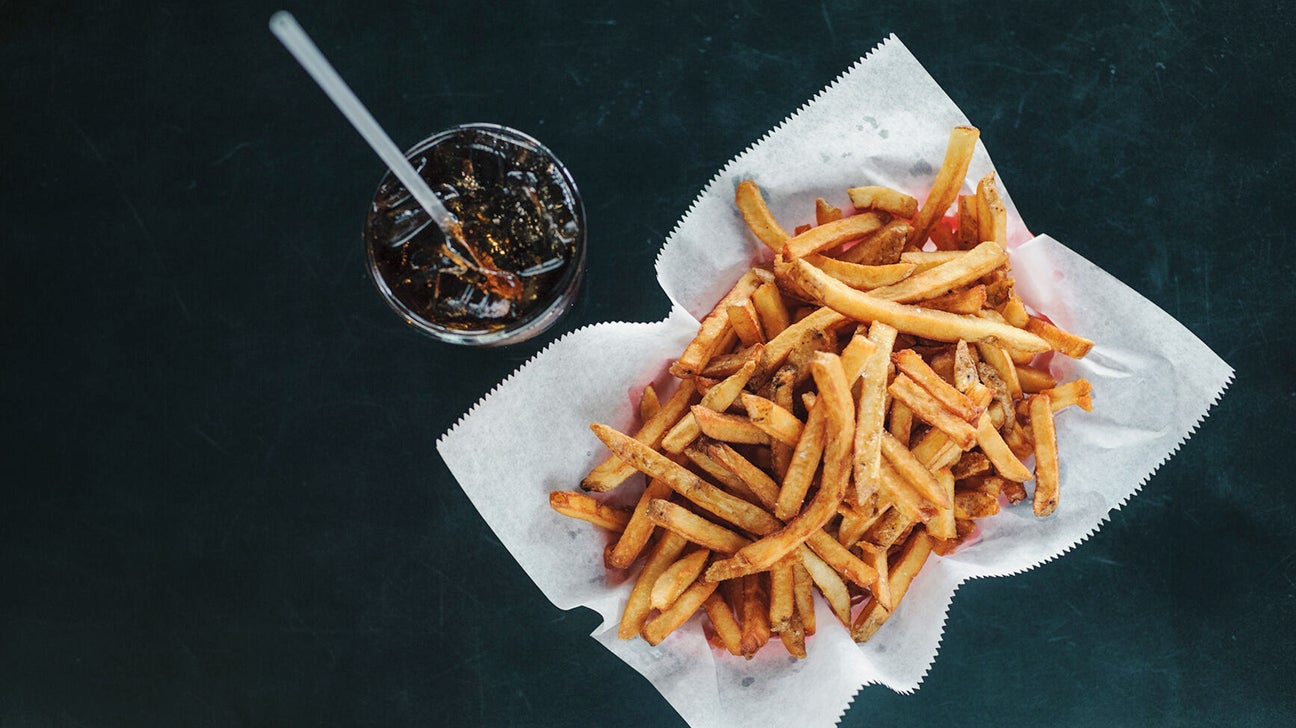
Credit: www.healthline.com
Frequently Asked Questions
Can I Eat Processed Food While Losing Weight?
Yes, you can eat processed food while losing weight, but moderation is key. Opt for healthier options with fewer additives and sugars. Balance your diet with whole foods, like fruits and vegetables. Focus on portion control and maintaining a calorie deficit to achieve effective weight loss.
Can I Lose Weight And Still Eat Junk Food?
Yes, you can lose weight while eating junk food. Focus on moderation and balance in your diet. Prioritize portion control and ensure you consume fewer calories than you burn. Incorporate healthy foods to meet nutritional needs and maintain overall health.
Regular exercise can also support weight loss efforts.
Which Food Should Be Avoided For Weight Loss?
Avoid sugary drinks and processed foods high in calories. Steer clear of fried foods and snacks high in salt. Limit refined carbohydrates like white bread and pasta. Reduce intake of high-fat dairy products and sugary desserts. Prioritize whole, unprocessed foods for effective weight loss.
Why Is Processed Food Bad For Weight Loss?
Processed foods often contain high sugar, unhealthy fats, and additives. They can increase calorie intake and cause weight gain. Lack of fiber in processed foods leads to less satiety, making you eat more. Whole foods promote better metabolism and sustained energy, aiding weight loss.
Conclusion
Eating processed food and losing weight is possible with care. Balance is key. Choose healthier options and control portions. Read labels to avoid hidden sugars and fats. Stay active to burn extra calories. Plan meals to prevent last-minute unhealthy choices.
Include fresh fruits and vegetables in your diet. Drink plenty of water to stay hydrated. Listen to your body’s hunger signals. Small changes can make a big difference. Stay consistent and patient with your journey. Achieving your weight goals requires commitment and smart choices.
Enjoy your food while making healthier decisions. Your body will thank you.
